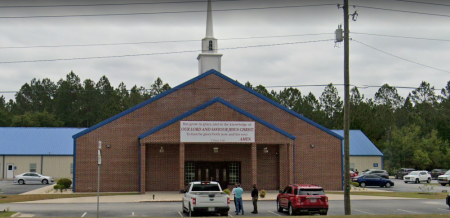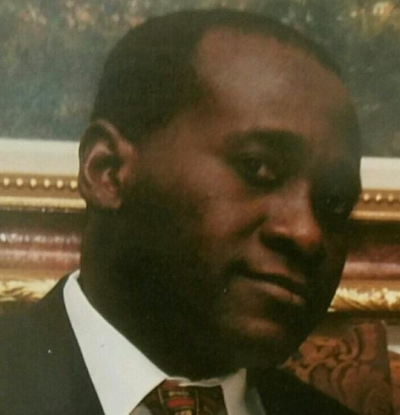House of Prayer schools allegedly bilked over $7 million from veterans for Bible study classes

A nonprofit organization called the House of Prayer, a chain of schools that students branded as a cult, has been accused of recruiting veterans and active service members and then bilking them out of more than $7 million in GI Bill benefits and disability checks to pay for Bible classes that were not accredited.
In testimony on GI Bill modernization before the House Veterans Affairs Committee on Wednesday, William Hubbard, vice president for Veterans & Military Policy at Veterans Education Success, an advocacy group focused on advancing higher education success for service members, veterans and their families, said the House of Prayer's abuse is proof that more oversight of the GI Bill program is needed.
“Irrespective of VA’s efforts to modernize and improve the administration of education benefits, student veterans continue to face the threat of predatory actors in higher education, and in many cases with alarming consequences. Recently, the FBI conducted multiple raids across the country on a system of GI Bill-approved schools that are affiliated under the banner of ‘House of Prayer,’” Hubbard noted in his testimony.
“These raids demonstrated the importance of remaining vigilant against harmful conduct, and of establishing much-needed minimum quality standards. In addition, over the course of the pandemic, the landscape of higher education has become dramatically less predictable; keeping a watchful eye for unscrupulous behaviors and low-quality programs is critical,” he added.

On June 23, the FBI raided at least six House of Prayer locations, including in Fayetteville, North Carolina, Georgia, Washington state, Texas and California, but it was unclear if the raids were connected to any particular case. The organization is led by the elusive veteran Rony Denis and has 11 churches near U.S. military installations.
House of Prayer allegedly used high-pressure tactics to recruit vulnerable veterans or active duty service members and exploited them for their government entitlements through programs such as the GI Bill, Military.com reported. In the meantime, Denis also reportedly enriched himself by building an untold real estate empire worth millions.
Some of the former students who spoke to the publication were reportedly veterans or active-duty members when they were involved with the House of Prayer. Some sources "described having suicidal ideation or previous attempts,” the publication said, adding that some were wounded in the post-9/11 wars or had previous trauma.
The GI Bill benefits, according to the U.S. Department of Veterans Affairs, help “qualifying Veterans and their family members get money to cover all or some of the costs for school or training.”
Arlen Bradeen, an Army veteran who ran the House of Prayer's Bible school from its inception in 2004 until he left the church in 2018, told Military.com how the organization exploited the GI Bill members' benefits once the Bible school was approved for the GI Bill in 2013. He recalled how the cost per semester for the Bible classes increased from an initial $300 to about $3,000.
"It burns me because there were a lot of good people who burned their VA money at these schools," Bradeen said. "They used all their college money to donate to Denis' Rolls Royces."
He said while the House of Prayer schools did not maintain the traditional course offerings available at other educational institutions, they used several tricks to ensure they could continue accessing the GI Bill benefits.
He revealed that the organization would rename classes to maneuver around the VA requirement that federal dollars cannot be used for a student to repeat a course. He further noted that the classes were no different than a regular Sunday school session focused on different themes from the Bible.
"We wanted all of them in there full time," Bradeen said. "So we would rename classes so they can retake the class."
The Christian Post reached out to the House of Prayer for comment on the report Thursday but a response was not received by press time.
The Rev. Jeff Derby, a spokesperson for the organization, told Military.com that their lawyers advised them not to make public statements on the situation.
"We have been advised by our lawyers not to speak, make comments, or make statements to the media or anyone while the Bible Seminary is being investigated," Derby said in a statement to the publication.
Bradeen said he was forced to leave his wife and family behind to escape the House of Prayer, lamenting the power Denis wielded over students and members.
Military.com cited a message in which Denis told his followers that God had permitted him to kill them, but he chose not to out of love. "God gave me permission to kill everybody in here. But I won't because I love you," Denis reportedly preached during one Sunday service, according to Rosalie Wright, an Army veteran and mother of four who was talked into spending her GI Bill benefits at House of Prayer schools.
Wright, who left the school without a degree or marketable skills after spending all her GI benefits on classes at House of Prayer, now cannot afford to study nursing.
"I am still trying to get established, and it doesn't feel great," she told Military.com. "When I got two kids in high school, I feel I should be further along, and I could really use the GI Bill right now."
Other students were also convinced to get low-cost VA home loans and then told to live in dorms so that House of Prayer could rent out those homes to generate revenue. Meanwhile, Denis acquired three multimillion-dollar homes in Georgia and Florida, Military.com said.
It was noted that state approving agencies, or SAAs, which determine if educational institutions meet the requirements for GI Bill money, began cracking down on the House of Prayer earlier this year after Veterans Education Success complained of abuses.
“At present, no effective system exists to proactively prevent bad programs from being approved to begin with. The statutes governing program approval are seriously outdated, still referencing classes taught ‘by radio,’ and they continue to allow a low standard of entry. We strongly believe that both veterans and taxpayers are entitled to a reasonable return on investment for the GI Bill,” Hubbard told the subcommittee on Wednesday.
“Unfortunately, there are numerous examples of programs that cause serious harm to the veterans they intend to train and educate. The consequences of veterans getting stuck at bad programs includes: unrecoverable wasted time, burdensome debts, and personal reputational damage,” he added.
“Despite showing poor results, many of these programs and schools continue to rake in millions of taxpayer dollars through the recruitment and exploitation of veterans and the abuse of their education benefits.”





















